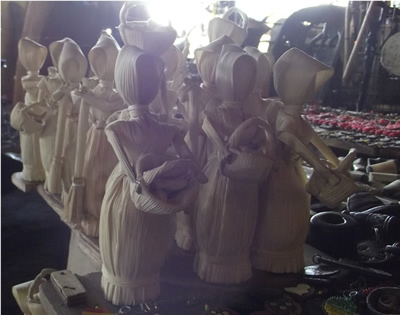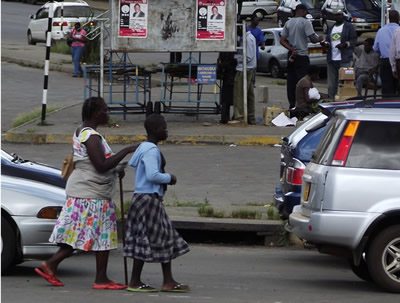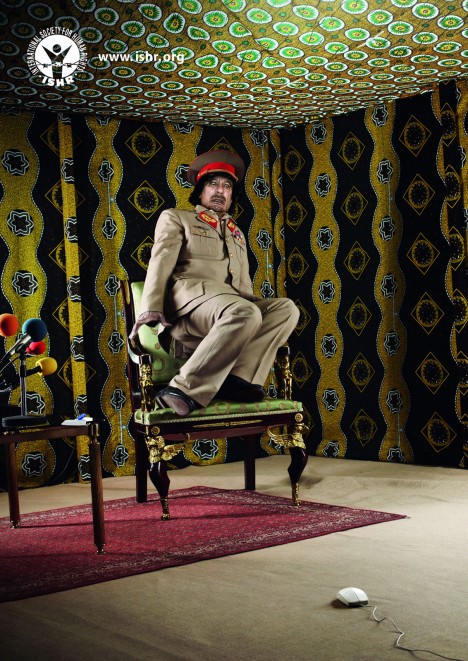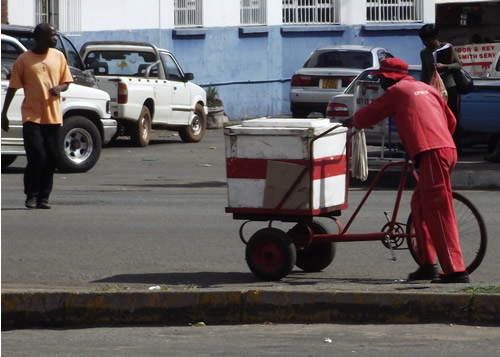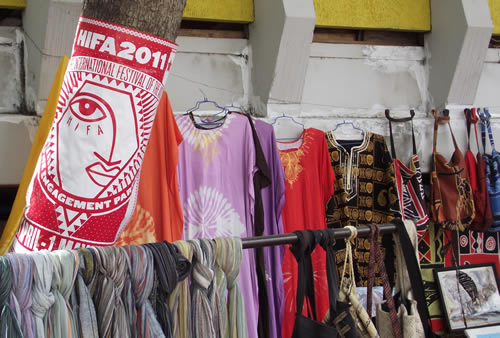Zimbabwe’s Disability Arts Festival
Friday, April 8th, 2011 by Elizabeth NyamudaThe University of Zimbabwe’s Department of Theatre Arts and the Faculty of Arts, in partnership and collaboration with Student Solidarity Trust (SST) and the Disability Resource Centre (DRC) this week hosted the Disability Arts Festival. Under the theme: Navigating and Re-negotiating Marginality: Cultural and Artistic Dimensions. Academic presentations, poems and plays were presented during the week. Of essential mention is the presentation by Mr Masimba Kuchera from SST.
Mr Kuchera is visually impaired and his presentation investigated ways that impaired people can navigate the marginalities they encounter in their daily lives. The action plan is not one which requires one to be educated or academically advantaged but rather it draws itself from the natural attributes of any human being whether disabled or not. He presented a 5-point plan way of navigating and re-negotiating marginality from both cultural and artistic perspectives. A plan is vital in a negotiation process, as it serves as a yardstick. Negotiators are therefore desired to:
1. Refuse to be a hostage of the situation
Our society tends to model the way in which disabled people grow. For example some are denied their right to access education. It has become “normal” to see a disabled person not go to school. Thus there is need for disabled people to decline to be held into that ‘model’ and choose a different path.
2. Know their weaknesses and understand their strengths
It is important that disabled persons know their weaknesses and understand their strengths. In so doing, they are able to accept their disability and concentrate more on what they can do best.
3. Be patient
Patience is a virtue. This applies to anyone in general. When one is negotiating there is need for them to understand how the system works so you can be able to manipulate it for it to work to your advantage. And this can only be done when one is patient and takes time to learn.
4. Be confident and assertive
From a cultural perspective, elders are the ones who sit at negotiating tables ‘matare’ and make the final decisions or have the final say over a matter. In a scenario like this, the ideas and opinions of young people tend to be ignored. Likening it to disability issues, there are some people who negotiate for the disabled and at times they are the able bodied ones. It therefore takes confidence from disabled persons to not look down upon themselves and know that ‘disability does not mean inability’, for them to negotiate for themselves. After gaining the courage to have said something, one should be assertive and stick to what they said until it has been achieved. However, this confidence should not grow into arrogance, as a thin line exists between the two.
5. Ignore artificial ceilings
Break new ground, do the impossible! Pearson Nherera was the first Advocate who was visually impaired. Herry Gwala, became the first MP in Uganda who had disability. Paul Matavire and Stevie Wonder entered the music industry. Disabled people need to identify the artificial ceilings (which are usually set by the society) and choose to ignore them.
Disabled persons should work closely with partners. First, the State is obliged to work with them. Members of Parliament and policy makers and advocates should be able to put systems in place to assist this group of people. Second, the media should accommodate them, rather than to choose to ignore them. Through the media, arts and cultural activists raising awareness of the situation of disabled people will be given a platform to fill the gap of their non-existence.
For a long time have we seen blind beggars sitting at street corners. Everyday we see them begging at controlled intersections. Jairos Jiri, had a dream, and created a home for disabled persons. But over the years, we wonder and ponder what our government and the non-profit making sector have done to assist disabled people. But the fact that their numbers are increasing in the streets shows that more work has to be done.



